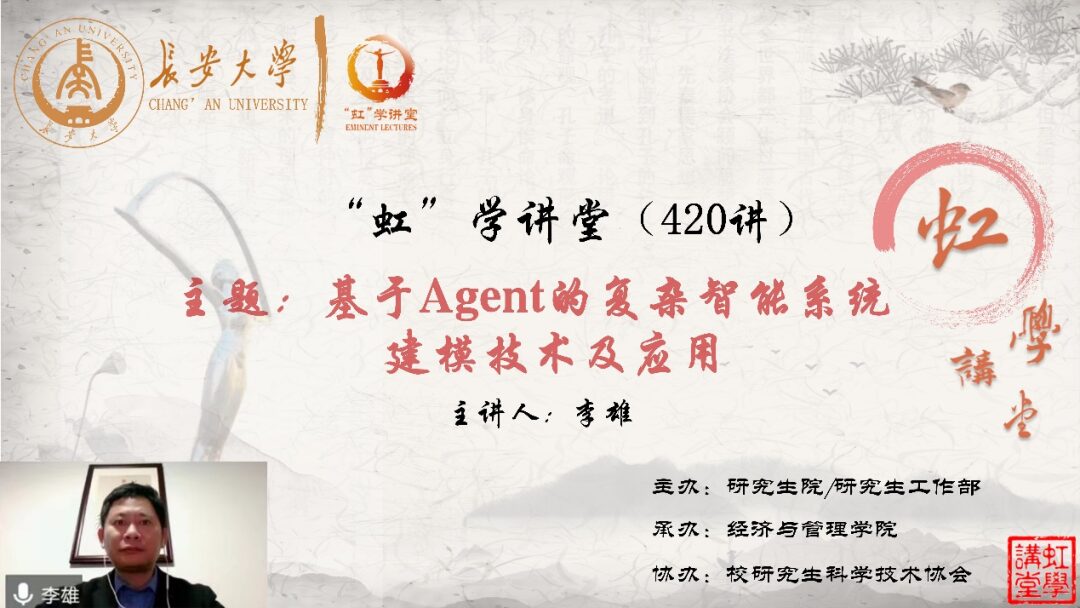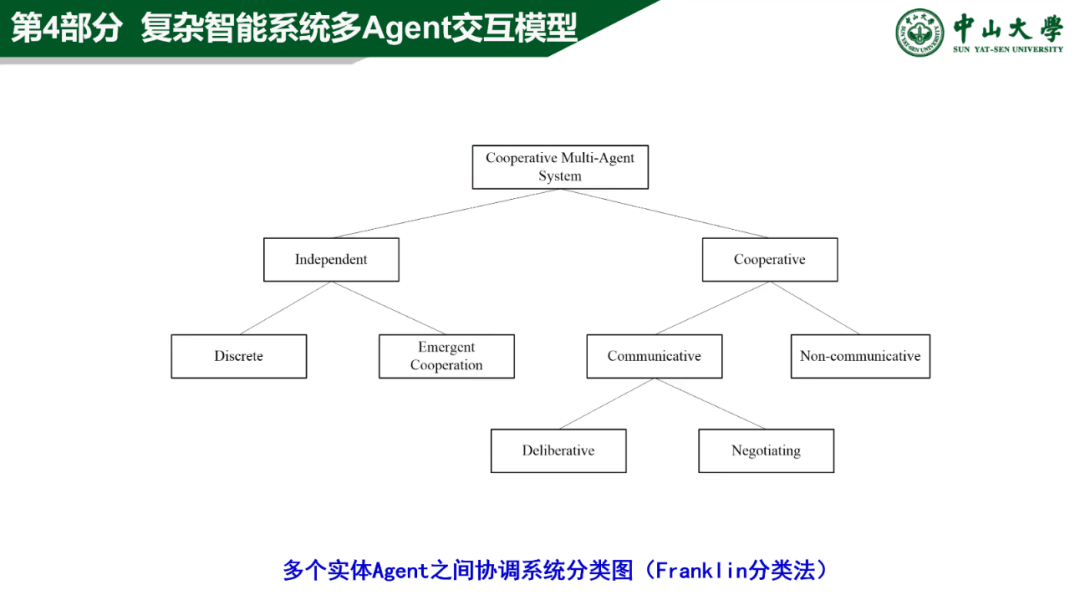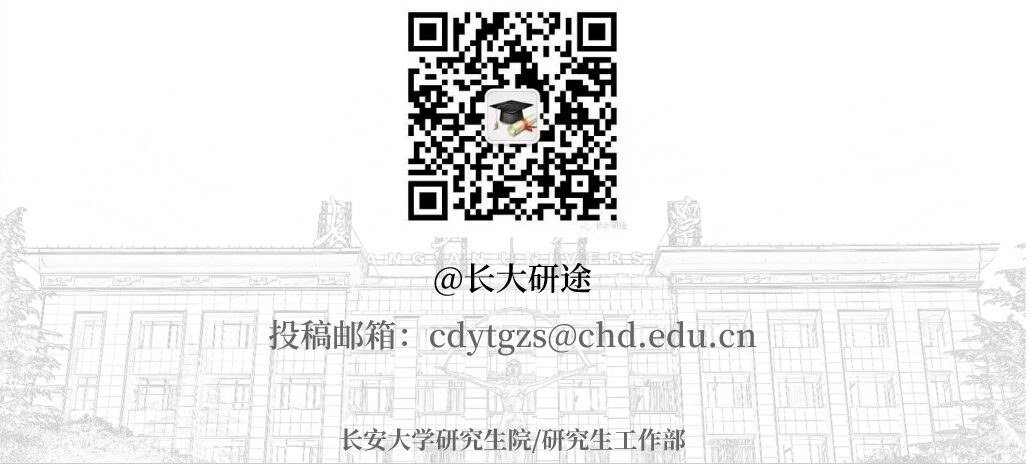
With the continuous improvement of China’s scientific and technological level, artificial intelligence has entered a period of rapid development. Agents, with their inherent advantages, are widely used in the modeling and simulation of various systems and play an important role in related fields. Next, let us enter this issue of the “Rainbow” lecture hall to learn about the modeling techniques and applications of complex intelligent systems based on agents!
Review of Previous Sessions
On the afternoon of January 13, the 420th lecture of the “Rainbow” lecture hall, hosted by the Graduate School/Graduate Work Department, organized by the School of Economics and Management, and co-organized by the University Graduate Scientific and Technological Association, was successfully held online. Professor Li Xiong from Sun Yat-sen University gave a report titled “Modeling Techniques and Applications of Complex Intelligent Systems Based on Agents”, hosted by Professor Ma Fei from the School of Economics and Management, with over 300 teachers and students from related colleges attending.

Professor Li Xiong presenting
This report mainly includes the following five parts:
(1) Complex intelligent systems and modeling requirements
(2) Agent-based modeling methodology
(3) Entity agent model of complex intelligent systems
(4) Multi-agent interaction model of complex intelligent systems
(5) Application cases and future outlook
1. Complex Intelligent Systems and Modeling Requirements
In complex intelligent systems, the agent model is a system that can autonomously and intelligently complete tasks assigned by other individuals in a certain environment. Its prominent characteristics are diversity, adversarial nature, dynamism, and flexibility. From the perspective of complex systems, modeling should meet new requirements such as nonlinearity, “emergent” behavior, adaptability, and self-organization.
2. Agent-Based Modeling Methodology
In the methodology, agents are translated as “intelligent agents” or “subjects.” By establishing an agent organization, it is used to classify and combine all task items needed to achieve the goal, endowing the subjects with the necessary functions, and finally conducting interactive cooperation under a communication protocol to achieve the goal.
3. Entity Agent Model of Complex Intelligent Systems
Professor Li Xiong presented the general agent model, equipment combat, and support agent models, while introducing three key points in the design of the agent knowledge base: domain knowledge, reasoning knowledge, and control knowledge.

Lecture scene
4. Multi-Agent Interaction Model of Complex Intelligent Systems
Professor Li Xiong pointed out that the design of the multi-agent interaction model mainly includes the interaction between agents and the natural environment, as well as the interaction between multiple entity agents. (1) The interaction between agents and the natural environment mainly involves systematic analysis of simulated entities and battlefield environments, with the modeling methods used being: grid method, average elevation method, linear interpolation method, and parameter method. (2) The interaction between multiple entity agents is primarily based on contract net cooperation, forming a contract net interaction protocol model (in AUML form), which is then improved.
5. Application Cases and Future Outlook
By citing actual cases such as modeling of equipment support systems and emergency management systems for major traffic accidents, Professor Li Xiong elaborated on the practical applications of agent-based complex intelligent systems. Finally, Professor Li Xiong analyzed the current challenges and key issues in the application field of agents and made further prospects.
After the report, Professor Li Xiong patiently answered students’ questions, allowing them to gain a deeper understanding of the modeling techniques and related applications of complex intelligent systems based on agents.
Feb.9
Image and text source | Graduate School of Economics and Management, Liang Siyu, Chen Nuolan
Academic Department of Graduate School Association, Du Luxuan, Li Na
Editor | Yang Kun, Li Yuxian
Review | Gao Tianzhi, Hu Jinyu, Guo Xu
